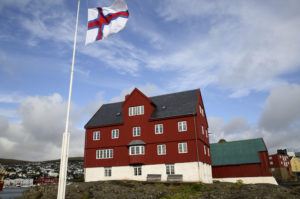I have no idea whether Brexit will happen in the end. I still suspect so, but if the people’s will is not carried out, it wouldn’t be the first time.

While on holiday in Malta last year, I read in passing a reference to a referendum the country held in 1956 to become a fully integrated member of the United Kingdom. That would mean three Maltese MPs sitting in the Westminster Parliament. Presumably, I thought, they voted against such an insulting and bizarre idea and chose to be a free and sovereign state. Actually, it was quite the opposite: 77% of Maltese people voted to join the UK, although there was a boycott by some sections of the population.
British rule of the island was fairly benevolent, the country had bravely endured intense bombing during the war, and there was strong attachment to Britain by the time of decolonisation. The Empire would be no more, so why not just join the mother country and become the fifth member of the union? Unfortunately, Britain couldn’t afford the costs involved in Act of Union 3.0, the idea was kicked down the road and eventually Malta became a republic.
That isn’t the only example of a referendum getting overruled. Just as Malta voted to remain, or join, so in the 1930s Western Australia voted to leave – Australia – by a margin of two-to-one. However, the vote was subsequently ignored after an anti-independence party came to power and many of the economic grievances driving the rift were addressed.
The same thing happened with the tiny Faroe Islands (pictured). The North Sea archipelago, famous for producing the jumpers worn by Sarah Lund in The Killing, voted to secede from Denmark in 1946.
The majority was just 51% to 49%, which meant the difference of 161 votes – the closest referendum in history. As it was, the victors couldn’t work out what type of independence they’d like, or indeed the economic implications, and so with typical Scandinavian reasonableness a compromise was reached in which the islands were given home rule. The Norway option, you might say.
Then there was the fantastically obscure 1898 Canadian prohibition referendum.
Twenty years before their neighbours passed the 18thAmendment, the Canadians voted to outlaw alcohol by just under 52% to 48%, following a campaign led by evangelical Protestants. The English-speaking provinces all voted in favour but the idea went down like a lead balloon among the French, as one would expect with a proposal to ban wine. However, they eventually concluded that it would be too divisive, too unrealistic, and also that the referendum lacked democratic credibility because of the low turn-out.
I’m not suggesting that ignoring the 2016 British referendum would be the same thing, only that it would not be the first time such a plebiscite was not implemented. Of course, Denmark’s 1992 Maastricht vote and Ireland’s 2001 Nice ballot were arguably both ignored; or at least, voters were given a second chance to vote the correct way, which is the way things are done with Brussels, and which in both cases galvanized British euroscepticism.










Join the discussion
Join like minded readers that support our journalism by becoming a paid subscriber
To join the discussion in the comments, become a paid subscriber.
Join like minded readers that support our journalism, read unlimited articles and enjoy other subscriber-only benefits.
Subscribe